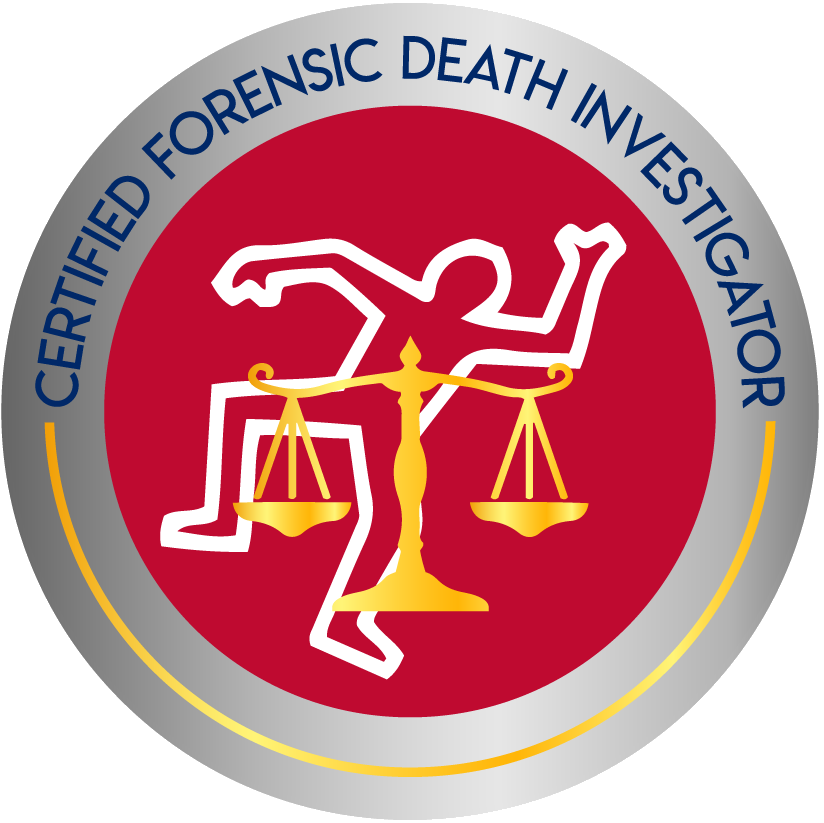A recent story, now several a day it seems, tells of a death row exonoree receiving a settlement for his wrongful conviction. In a recent settlement this was $20 million. Also recently is the story of a Texas prosecutor being charged with misconduct in a death penalty case. However, that wrongfully convicted person was executed in 2004. The levels of wrongful conviction span all – from misdemeanors to death penalty cases. We should be concerned with all imbalances we face and their consequences. The percentage of these wrongful convictions is low, and in reality not fully avoidable. However, we can work to mitigate these as practicing legal investigators and through our state and national associations.
Let’s look at the recent example. For a fraction of this $20 million could be an increase in the funding and resources for the defense would be a start. Next, fix the budget and resources for the prosecution to the same as the defense, and fine the prosecution the $20 million. In another case, the former prosecutor offers this, “Had I been more inquisitive, perhaps the evidence would have come to light years ago. But I wasn't, and my inaction contributed to the miscarriage of justice in this matter. Based on what we had, I was confident that the right man was being prosecuted and I was not going to commit resources to investigate what I considered to be bogus claims that we had the wrong man.” In other words, this prosecutor shared only that evidence with the defense that is only guilty. That is exactly the point of his, and so much, prosecutorial misconduct. A poor attempt at apologizing through justifying his actions.
In other words, this prosecutor shared only that evidence with the defense that is only guilty. That is exactly the point of his, and so much, prosecutorial misconduct. A poor attempt at apologizing through justifying his actions.
In another recent story, and a first, a prosecutor was jailed for misconduct – a Brady violation – for withholding evidence from the defense known to be exculpatory. During the 25 years of incarceration for this wrongful conviction, the prosecutor had a distinguished career and eventually became a judge. The former prosecutor pled to criminal contempt, surrendered his law license, and sentenced to perform 500 hours of community service with 10 days in jail. Not much for his misdeeds – prosecutorial misconduct, which too often goes unchecked.
In my hometown was a notorious homicide about the time I started my agency. A young man, a teenager, was the first and only suspect – hounded by the lead detective. When this arrest was announced over 15 years later I was in a class by a well-known retired FBI Behavior Analysis Unit founder. The defendant went on to be prosecuted, using evidence by the retired BAU consultant and a forensic psychiatrist using drawings depicting violence. The prosecutors would each become judges and the detective went on to lead the detective bureau. Years later the defendant was released on the first case of ‘touch DNA’. After his release one of the judges made this statement to the local media, “Its not like we were hiding anything. A few things weren't provided. Lawyers ought to have known or asked about the evidence because it was referenced in multiple documents they were given.” [NOTE: the cite for this is unavailable, other than the local newspaper – I have kept the quote for reference] Both judges were censured, regulators felt they should have pressed police harder to provide all of the information. They would both later seek re-election, and for a first time in several decades a sitting judge – two actually, a first – was not retained in re-election in our county. The detective also faced perjury charges and withholding evidence that was found to be at his home. Experts consulted by the prosecution have variously expressed their opinions may have been different had they been presented all the evidence, and not only what the prosecution wanted them to see – which was limited by what the detective wanted the prosecution to see.
It was the tenacity of the new defense teams in all of these cases which won the rightful release of their clients. Our profession is filled with many, many members that have been material in garnering the release of the wrongfully convicted. Most of these cases are indigent – either through private appointed counsel or public defender offices (state and federal). While sitting in the courtroom, have you looked around and estimated the cost of the prosecution for the hour, day or week? How about the defense? We are all familiar with the OJ Simpson case – the first fully televised trial, which seemed to have more attorneys than jurors. This is not what we usually see – both sides had funding and resources, essentially trying to outdo each other. I have participated in the pro se defense as the only assistance to the defendant, denied funding for DNA tests and even my own fees. However, the prosecution had three attorneys rotating for the week, a half-dozen experts, unlimited laboratory services, delayed disclosure, and – of course – funding and resources the defense cannot have. I have been the only expert on a case in which the prosecution asked why; well, that was all the funding approved by the court. If you are a criminal defense investigator, you have been involved in the imbalances of the scales of justice.
What benefits does the prosecution have? The list varies, but the basics are funding and resources. Funding is what it takes to bring the case to conviction at trial. Resources range from local municipal and county law enforcement and crime lab resources, to the same state and federal resources. While observing this in the courtroom, what we do not see is the foundation of those resources. Taxpayers – all taxpayers – pay for the infrastructure and personnel of these resources, which includes training. The average public servant does not pay for their training, but each of us in the private sector pays 100% of our infrastructure and training costs. We are also denied the same or equivalent training and resources. I do not believe the average taxpayer understands what takes place – many of us do not until we sit in the courtroom for a full hearing or trial. If so, I doubt they would agree that funding only the prosecution so greatly, and indigent defense so minimally, is a fair and balanced justice system.
The first hurdle of the defense is a guilty as charged. We know it is not guilty until proven beyond a reasonable doubt. But, would prosecutors withhold exculpatory evidence if so? The second hurdle of the defense is the evidence – withheld evidence, neglected evidence, spoliated evidence, and ignored evidence. That is a pretty significant hurdle to overcome, and the first and second hurdles combined make for a very daunting series of tasks. These hurdles become exponentially larger as the funding becomes less. Recently I asked several colleagues who accept appointed cases what their compensated rate is. The range was $30-$40 per hour, from which taxes and overhead come out and they often work more hours than they are approved to bill, and often eat up expenses that are refused. Attorneys range from $60 to $80 per hour, and have the same obstacles. Do law enforcement and the prosecution have such limited funds and only 1-2 attorneys and investigators per case. No. The cases are given priorities with the funding and resources to reach the goal those priorities set.
There are no easy answers. I feel strongly that we have the best justice system in history and the world. It has its flaws, but most of those flaws are at the human level. It is difficult to present solutions. At a recent association conference a retired federal judge was a keynote speaker and was pushing for reform that would give appointed attorneys and investigators the equivalent hourly fee of their counterparts. However, it is also about resources – from laboratories and experts, to education and training – which all do require not only funding, but access.
Next have been suggestions that those withholding, spoliating or otherwise manipulating the evidence be held accountable – from fines to equal incarceration. It is unlikely a prosecutor would be imprisoned for 25 years, or perhaps life for multiple acts of misconduct resulting in multiple wrongful convictions. However, more than 10 days would send a message. Perhaps an independent state level review panel comprised of professionals and citizens – similar to civil rights review panels. The concept would be to disarm those who are left policing themselves. Professional misconduct is not subject to immunity – it is simply treated with immunity.
Perhaps we can begin to balances those scales. What is the cost of one wrongful prosecution? We simply cannot know – from the cost of trial to appeals and any settlement award – billions per year. These awards earned by decades of incarceration – many having faced execution – do not give them back what they have lost and doesn't put the person who should be in prison, there. In closing, there is one example of taking judicial notice of funding and resources in the rights of the defendant. On February 24, 2014, the United States Supreme Court issued a per curiam reversal in the case of Alabama death row inmate Anthony Ray Hinton. Applying “a straightforward application of [its] ineffective-assistance-of-counsel precedents,” the Court held that “it was unreasonable for Hinton’s lawyer to fail to seek additional funds to hire [a forensic] expert where that failure was based not on any strategic choice but on a mistaken belief that available funding was capped at $1,000.” For now, we must continue to be truly impartial finders of fact while forging our own paths over the obstacles we face.
----------
Dean A. Beers, CLI, CCDI and Karen S. Beers, BSW, CCDI
Colorado Licensed Private Investigators PI2.050 and PI2.019
Cheyenne WY Licensed Private Investigators & Security (No. 31146)
Board Certified Legal Investigator / Expert Consultant (national)
Board Certified Criminal Defense Investigators
Certified in Medicolegal Death Investigations / former Deputy Coroners
Associates in Forensic Investigations, LLC
A Rocky Mountain West Agency
Expert Consultants and Legal Investigators
Personal Injury, Negligence & Death in Civil, Criminal and Probate Litigation
www.DeathCaseReview.com ~ [email protected]
CO - (970) 480-7793 Office / TXT and (970) 480-7794 Fax
WY - (307) 222-0136 Office / TXT and (307) 222-0138 Fax
'Quaero Indicium' - To Find The Evidence
Keep informed - visit and 'Like' us on Facebook at www.Facebook.com/4N6Associates and our agency blog at www.MedicolegalPI.com
Listen to Facts & Forensics at www.GIMG.tv
On-Demand Distance Learning at www.InvestigativeCourses.com



